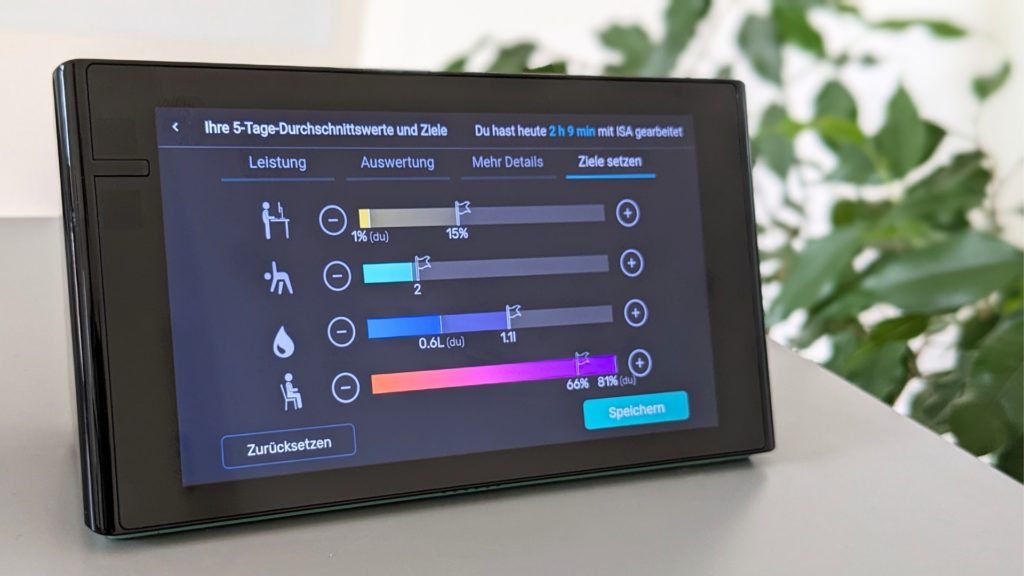
Employees can set themselves individual health goals with Isa and receive motivating feedback and valuable analyses to help them recognise and celebrate long-term successes.
We are constantly working to improve the digital health coach Isa by incorporating feedback from numerous users, customers and partners into the development process. We are also constantly training the AI model and further adapting the intervention concept based on scientific findings. This results in iterative improvements to the existing functions, for example in terms of recognising ergonomics or the logic of instructions. Occasionally, however, Isa also receives completely new functions. Below we show which ones have been added recently and what benefits they have for strengthening healthy behaviour.
Until now, Isa was set to automatically delete the usage profile at the end of the day. The reason for this is that we always work according to the principle of maximum data minimisation. This means that Isa only collects, processes or stores the data that is necessary for effective coaching. This means that only the data for the current day is required and stored for personalised support through the provision of tailored advice.
However, due to the daily deletion of the user profile, Isa cannot show how personal health behaviour changes through use or adapt the coaching accordingly. Therefore, in addition to the previous setting, Isa now offers the option to Storage period can be extended as required. Users can thus organise their Track progress in the long term, itself Set individual goals and Achieve success more easily.
Users now benefit from more comprehensive insights into their own behaviour. Based on the selected data storage preference, they receive exciting analyses of their daily health behaviour as well as important Analyses of their behaviour over several Weeks or Months away.
Changing behaviour takes time and perseverance. The ability to see the success or failure of one's own efforts in context can increase motivation and help to change behaviour in the long term. Isa therefore enables users to make individual and long-term behavioural changes. Goals who are on their current level of health based.
Isa first determines the level of health behaviour. Based on this, concrete Daily goals that help to implement healthy behaviour in everyday life. The goals can be adjusted regularly, for example every week, so that they are challenging but not demotivating. This leads to employees regularly reflecting on their goals and often Celebrate successes can
With Isa, employees can set individual health goals and celebrate long-term successes. The new features of long-term analyses and individual goal setting help them to understand their behaviour and stay motivated. From a behavioural science perspective, this is of great importance, as long-term goal setting and continuous monitoring of behaviour enable desired behaviours to be internalised and new habits to be formed. Studies have shown that the combination of goals and feedback increases the likelihood that changes in behaviour are sustainable and can be maintained in the long term.
By continuously developing existing functions and adding new ones, we want to help make health promotion more sustainable. With Isa, you can empower your employees to take ownership of their wellbeing and health, creating a culture of proactive health management to encourage positive habits in the long term.